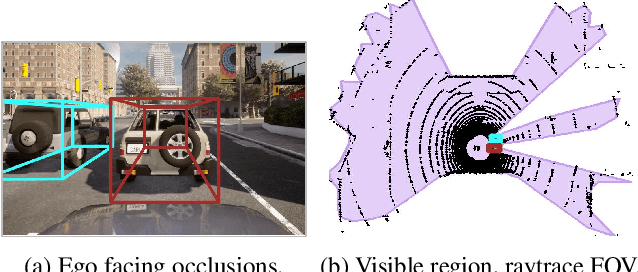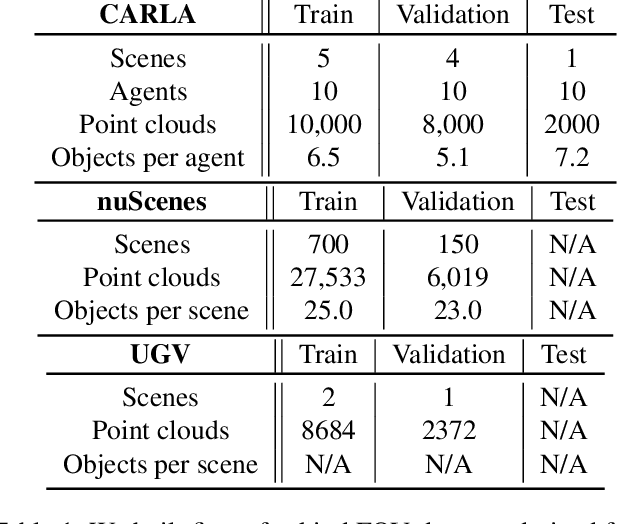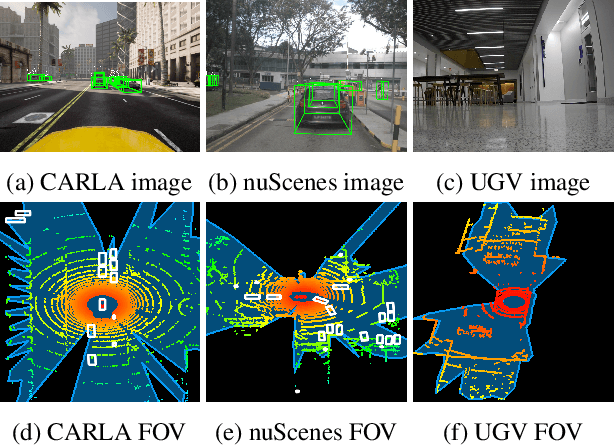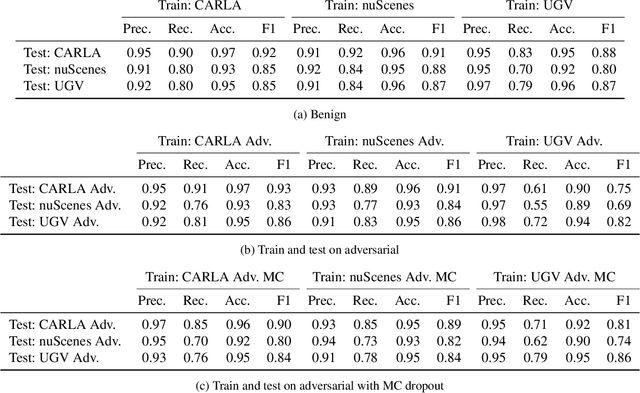Judy He
Probabilistic Segmentation for Robust Field of View Estimation
Mar 10, 2025



Abstract:Attacks on sensing and perception threaten the safe deployment of autonomous vehicles (AVs). Security-aware sensor fusion helps mitigate threats but requires accurate field of view (FOV) estimation which has not been evaluated autonomy. To address this gap, we adapt classical computer graphics algorithms to develop the first autonomy-relevant FOV estimators and create the first datasets with ground truth FOV labels. Unfortunately, we find that these approaches are themselves highly vulnerable to attacks on sensing. To improve robustness of FOV estimation against attacks, we propose a learning-based segmentation model that captures FOV features, integrates Monte Carlo dropout (MCD) for uncertainty quantification, and performs anomaly detection on confidence maps. We illustrate through comprehensive evaluations attack resistance and strong generalization across environments. Architecture trade studies demonstrate the model is feasible for real-time deployment in multiple applications.
 Add to Chrome
Add to Chrome Add to Firefox
Add to Firefox Add to Edge
Add to Edge